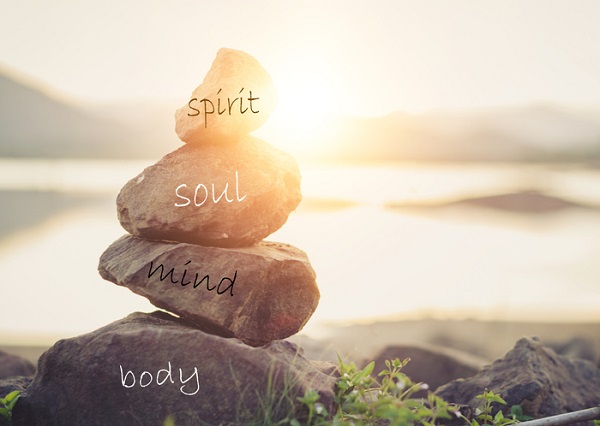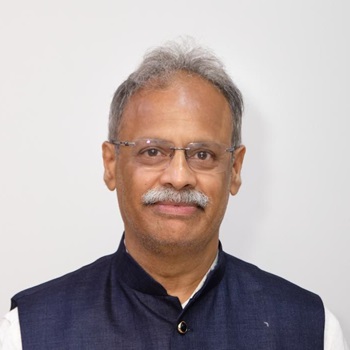.png)
What We Really Need Is A Gym For The Mind, Not Just The Body
We train our bodies but ignore our minds. True happiness comes from mental fitness, built through presence, reflection, and emotional discipline.


Babuji K is a career central banker with 35 years at RBI in exchange rate management, reserve operations, supervision, and training.
July 13, 2025 at 1:00 PM IST
“The most perilous path is the one walked by the unaware mind.” – Buddha
Modern life has led us to believe that the pursuit of happiness is external, found in career milestones, social status, or material comforts. Yet, as many come to realise, none of these offer enduring peace. A strong body may be admired, but without a strong mind, even the fittest falter under life’s pressures. Lasting contentment demands mental conditioning just as much as physical fitness.
Despite the explosion of gym memberships, diet trends, and wearable trackers, we still shy away from mental self-care. The result? A society that is outwardly functional but inwardly fractured. Stress, anxiety, fear of the future, and regret over the past are now common denominators, even among the materially successful. Many continue to chase validation while failing to appreciate the present moment, which is our only true possession.
Mental Muscles
Mental fragility, unlike physical injury, rarely announces itself. It often hides beneath a veneer of competence, surfacing only when it’s too late. Much like the submerged mass of an iceberg, these silent stressors require immediate attention. And the starting point is self-awareness.
We live in a state of habitual automation—waking, working, and reacting with barely a pause to reflect. Such a lifestyle disconnects us from the now, fuelling either nostalgia or anxiety. True mental clarity lies in fully living in the present.
Mental health depends on the quality of our mental intake—what we read, listen to, watch, and think. Today’s technology-saturated environment floods the mind with irrelevant and toxic content, creating emotional confusion. Hence, individuals must practice "brain traffic control" by being selective about what they allow into their mind and optimise cognitive space.
In today’s digital age, tools like Google and AI are almost as fundamental to daily life as food, clothing, and shelter. While mobile devices and computers support us, overreliance can disturb the harmony between mind and body. The traditional mantra of roti, kapda, makaan might well include “mobile”. We are connected, but not necessarily conscious.
Even physical ailments like hypertension and diabetes, though well-documented, continue to rise. This stems from a misplaced belief that medicine or a few wellness retreats can undo years of neglect. A healthy life isn’t episodic; it is habitual.
Emotional Discipline
Spiritual and mental health are deeply interlinked, with one reinforcing the other. India faces a growing mental health crisis: approximately 14% of the population requires psychological support, far beyond the reach of the country’s current infrastructure. The COVID-19 pandemic has only worsened this imbalance, with anxiety and depression becoming widespread.
A major modern challenge is managing relationships—across age groups. Relationships are becoming increasingly complex and fragile. Conversations are becoming inauthentic and transactional in nature. A Harvard Study of Adult Development, spanning over eight decades since 1938, found that the single most important factor for happiness and long life is positive relationships, not career success, wealth, diet, or exercise. Warm, fulfilling relationships are the strongest predictors of overall well-being.
To cultivate peace of mind, one must embrace the concept of an "emotional diet". This involves consciously consuming thoughts and emotions that are uplifting and helpful. Emotional intelligence—the ability to manage and understand emotions—is as critical as intellectual intelligence.
A powerful tool in this pursuit is emotional minimalism: reducing exposure to meaningless or harmful information. Addictive behaviours such as doomscrolling, binge-watching news, and gadget obsession not only exhaust the brain but displace real joy. Reducing screen time and focusing inward restores mental clarity.
A structured daily routine that nurtures both body and mind can significantly improve holistic health:
1. Start early with a clear intention to strengthen both body and mind.
2. Avoid gadgets for the first 30 minutes to prevent mental pollution.
3. Engage in physical exercise for 30 minutes to boost energy and vitality.
4. Be in a meditative state for 30 minutes by simply observing your breath.
5. Maintain a daily checklist that includes mental health priorities.
6. Take hourly breaks, similar to intermittent fasting, to refresh your mind with brief moments of stillness.
7. Follow a clean, nutrient-rich diet, and eat only when hungry.
8. Switch off screens at least 30 minutes before sleep.
9. End the day with gratitude, reflecting on what you have rather than what’s missing.
10. Escape to nature when possible. Its rhythm often realigns our own.
Lastly, carve out solitude—at least 30 minutes a day. This allows for introspection, reconnection with the “inner child,” and observation of one’s own thoughts and feelings. Most avoid such reflection due to discomfort, but this avoidance prevents genuine mental growth. Mastering the “monkey mind” through conscious living enables individuals to lead fulfilling, centered lives.
In the end, the pursuit of a joyful life is neither mystical nor material. It is mental. To live fully, one must live mindfully.



